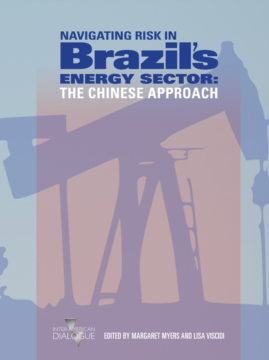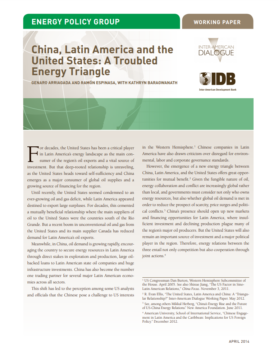The Nationalism of Cristina Fernández de Kirchner
Argentine President Cristina Fernández has increased her appeals to nationalist sentiment to build domestic political support.
Argentina’s economic crisis and the fiscal belt-tightening it demands have led to gradual cuts to wholesale electricity and natural gas subsidies for consumers and a liberalization of energy prices over the course of Mauricio Macri’s administration. This has helped make Argentina more attractive as a destination for energy investment despite its economic tumult, said Argentine Secretary of Energy Gustavo Lopetegui at an event organized by the Inter-American Dialogue on March 14.
Since President Macri took office in December 2015, a core element of Argentina’s energy policy has been the reduction of generous electricity and gas subsidies, which accounted for around 3% of GDP when Macri took office in 2015. In that year, 47% of the price of natural gas for consumers was paid by the government, a share which Lopetegui projects will be just 10% in 2019. The secretary also stressed that the Macri administration’s policy of market pricing has allowed gas prices to increase and created a more favorable investment climate even as subsidies have shrunk.
[caption id="attachment_79958" align="alignleft" width="419"] Fernando Oris de Roa, Argentina's ambassador to the US, delivers opening remarks.[/caption]
Fernando Oris de Roa, Argentina's ambassador to the US, delivers opening remarks.[/caption]
Argentina’s largest hydrocarbons resource, the Vaca Muerta shale formation in Neuquén province, has seen sharp growth in production in this context, with shale gas output ramping up 215% in 2018 and shale oil by 87%. Lopetegui claimed that with “world class” geology and geography, low population density, and abundant water, Vaca Muerta has much room to grow yet—just 4% of its unconventional acreage is in the development phase. More coordination on environmental regulation between levels of government, the presence of more players to drive down costs, and more infrastructure investment to transport gas to demand centers like Buenos Aires (for which a bidding process of more than $1.5 billion is expected this year) are among the factors that could drive production up further.
[caption id="attachment_79955" align="alignright" width="435"]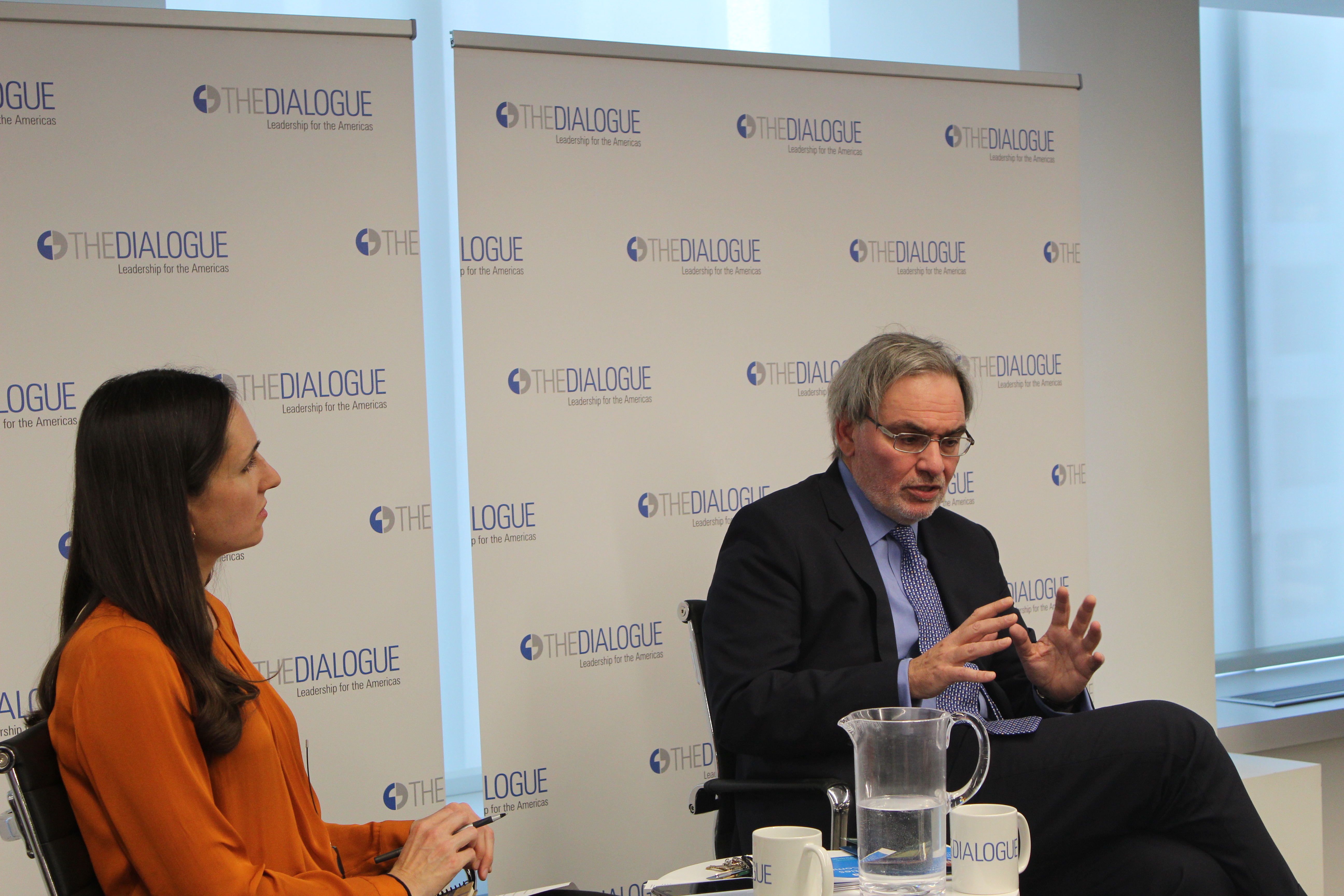 Lopetegui speaks with Lisa Viscidi, director of the Dialogue's Energy Program.[/caption]
Lopetegui speaks with Lisa Viscidi, director of the Dialogue's Energy Program.[/caption]
In fact, developing additional natural gas transportation capacity is key to Lopetegui’s plans to improve Argentina’s energy trade balance. Though the country has been a net energy importer since 2011, under Macri, natural gas exports to Chile and Brazil have resumed after a decade-long hiatus. Lopetegui intends to replace winter LNG imports with domestic production and to expand summer natural gas exports beyond Argentina’s neighbors to the international market via LNG. Argentina has a shortage of gas in the winter when the fuel is needed for heating and a surplus in the summer. State company YPF recently signed a ten-year contract to commission a floating liquefaction unit, providing supply flexibility.
Argentina has also increased its domestic electricity generation since 2015 by awarding almost 4.5 GW of renewable energy capacity through power purchase agreements in its RenovAr auctions. In 2018 solar generation increased 559% and wind by 129%, and there is much more potential. Moreover, Argentina’s solar and wind centers are sparsely populated, which could help avoid the local objections to renewable energy projects that other countries have witnessed. Just as more pipeline capacity is needed for Vaca Muerta’s gas, transmission lines are being expanded so that more renewable energy can be brought on line.
Finally, Argentina’s Secretariat of Energy has taken steps to advance energy efficiency through awareness campaigns, updates to product performance standards, prohibition of halogen lamps, and energy management systems in industry. More efficient energy use could assuage somewhat the short-term pains of price liberalization. In the long-run, the government expects that market prices for energy will yield both vast benefits in the form of investment and a healthier public balance sheet.
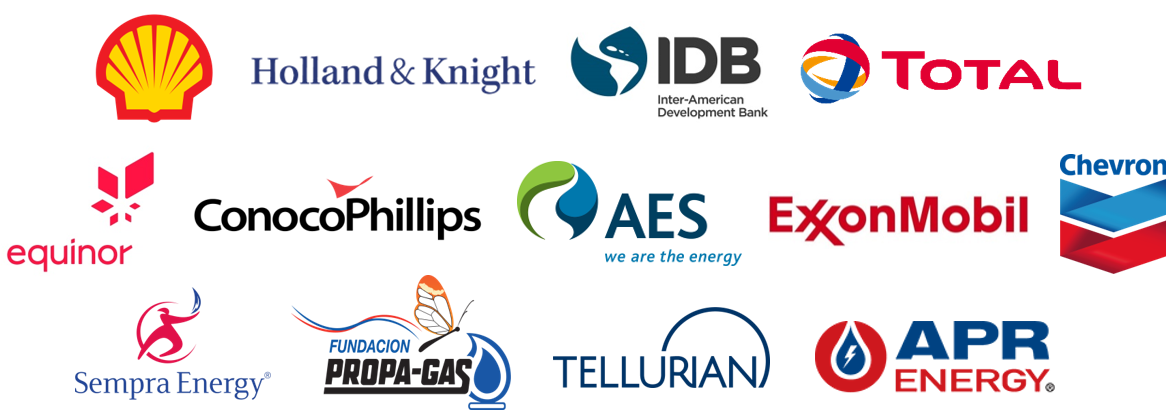
Argentine President Cristina Fernández has increased her appeals to nationalist sentiment to build domestic political support.
Brazil’s oil and gas and electricity sectors are an important destination for Chinese direct investment.
The US’ standing as the main consumer of Latin America’s oil exports is unraveling as China emerges as a major consumer of global oil supplies.
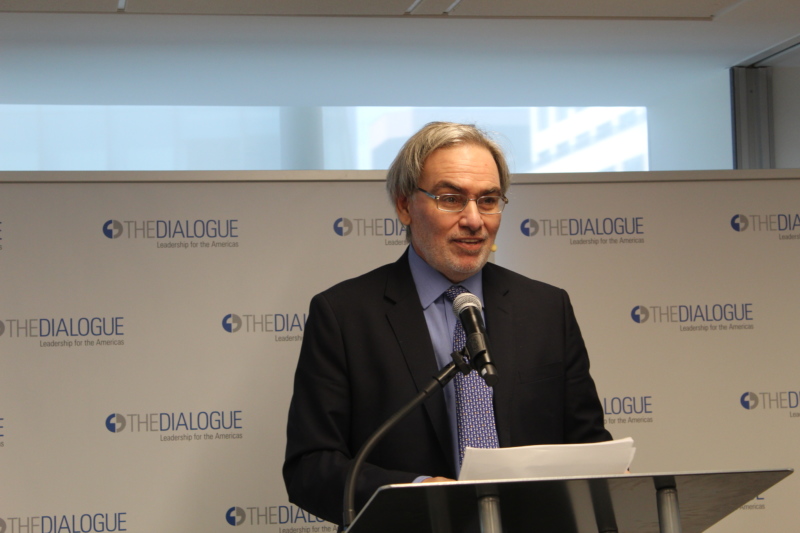 Pedro Luis Garmendia / Inter-American Dialogue
Pedro Luis Garmendia / Inter-American Dialogue
